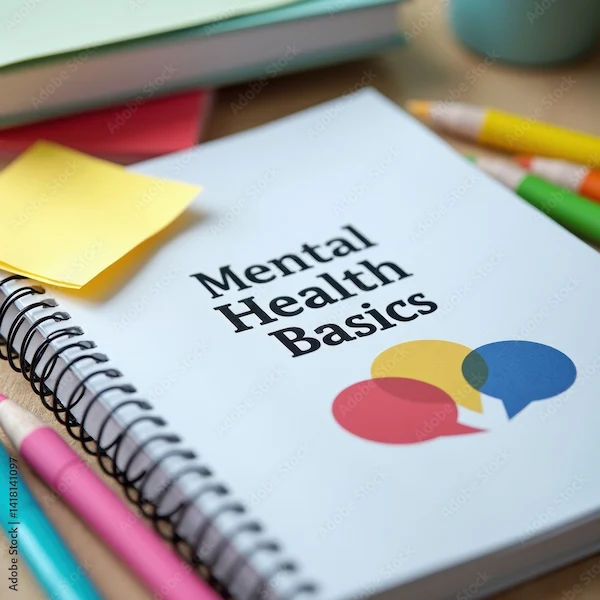Drug Abuse And Brain Damage: Effects, Risks And Recovery
Discover how drug abuse affects your brain, leading to memory loss, addiction, and cognitive decline. Learn prevention, treatment, and recovery strategies.

Written by
Last updated on 3rd Jul, 2025

Introduction
Your brain is the command centre that controls all your thoughts, decisions, and emotions. Whether it begins with curiosity, stress relief, or medical prescriptions, substance misuse can quickly take over your brain and adversely affect you and your family. Whether you’re looking to help someone or stay informed, this knowledge can help you to take the right steps. In this article, you’ll learn how drug abuse can reshape your brain and why awareness is the first step to change.
Types of Drugs and Their Effects on Your Brain
Your brain responds to different types of drugs in different ways. While some drugs can enhance your brain activity, others can make it slow. Repeated use of drugs may rewire your brain and make you vulnerable to addiction, poor cognitive function, and emotional instability.
Depressants and Their Effects: Using depressants like alcohol and benzodiazepines can slow down your brain activity. This slowing down will induce a feeling of relaxation in your mind. However, your memory, coordination, and your ability to control emotions will get affected through excessive use of depressants. Though rare, depressants may also make you prone to life-threatening withdrawal symptoms.
Stimulants and Their Effects: Stimulants like cocaine and methamphetamine can increase your dopamine levels. Taking these substances will make you feel energetic, alert, and euphoric. However, you will experience paranoia, aggression, and permanent changes to your brain structure with long-term use.
Hallucinogens and Their Impact: Drugs like LSD and psilocybin can alter your perception, mood, and cognition. They interfere with your serotonin pathways. Over time, you will start hallucinating or experience long-term mental health issues.
Opioids and Their Influence on Brain Function: Opioids like heroin and prescription painkillers can flood your brain with dopamine and trigger a sense of euphoria in you. Over time, they will weaken your natural reward systems and make your brain dependent.
How Drugs Affect Brain Chemistry?
Your brain controls everything from your emotions to decision-making. But when drugs enter your system, they hijack this balance and adversely affect your mental and overall health.
Changes to the Brain Structure: Repeated drug use can physically change your brain structures like the prefrontal cortex (responsible for decision-making) and the limbic system (controlling emotions). As a result, you will experience impulsivity, cravings, and reduced self-control.
Neurotransmitter Alterations: Drugs interfere with the way your brain’s neurotransmitters (chemical messengers) work. The use of stimulants can overwhelm your system with dopamine. As a consequence, you will feel a sense of intense pleasure. On the other hand, taking depressants will slow down your Gamma-aminobutyric acid (GABA) activity, which is important for regulating your sleep and controlling anxiety.
Long-Term vs. Short-Term Changes: You will experience some effects wearing off with time. But, prolonged use can permanently alter your brain chemistry and make your recovery difficult.
Cognitive and Behavioral Effects of Drug Abuse
Drug abuse negatively affects the way you think, feel, and act. Over time, these substances can disrupt your cognitive functions and drive behavioral changes that you will find hard to reverse.
Decision-Making Challenges: Drugs can weaken your prefrontal cortex, the part of your brain that controls judgment and impulses. The result? You may become reckless and prone to making poor choices, engage in risk-taking behaviour, and find it difficult to resist your cravings.
Behavioural Changes and Addiction Patterns: From mood swings to aggression, drug abuse can reshape your emotional responses. It can make you prone to compulsive behaviour. This will reinforce your addiction cycles where seeking the next high will become more important for you than anything else.
Memory Impairment: Alcohol, cannabis, and opioids can interfere with the hippocampus (your brain’s memory centre) and make it difficult for you to remember things. Over time, your short-term lapses will worsen and make it difficult for you to learn and recall.
Risk Factors for Brain Damage Due to Drug Abuse
A mix of genetics, environment, and usage patterns can determine how vulnerable your brain is to lasting harm.
Environmental Influences: Your risk of brain damage will increase if you live in an environment where drug abuse is common.
Family History: Your chances of brain damage from drug abuse may be high if you have family members who have or have had addiction in the past. There are certain genes that affect how your brain responds to substances. Having these genes can make you susceptible to dependency and cognitive decline.
Age of First Use and Frequency: The younger you start and the more frequently you use drugs, the worse their impact on your brain and overall health. This is because your brain is more vulnerable when you're young and repeated exposure early on can make your recovery harder.
Early Signs and Symptoms
Drug abuse can silently reshape your body and mind. The sooner you spot the signs, the better your chances of reversing the damage.
Physical Symptoms: Are you looking unusually tired, losing weight, or having bloodshot eyes? You should look out for signs like jittery energy, insomnia, and slowed-down coordination. You should also look for small signs like frequent nosebleeds (from snorting drugs) or persistent flu-like symptoms.
Cognitive and Emotional Changes: Interference of drugs with your brain function can make you forgetful and unable to focus. Emotionally, you will appear distant, irritable, and unmotivated. If you start isolating yourself or make reckless choices, it may indicate that you have become dependent on drugs.
Diagnostic Techniques
Your doctor will perform advanced imaging and psychological tests to detect the effects of substance abuse on your brain.
Neuroimaging Techniques: MRI and PET scans can reveal structural and functional changes to your brain. They will reveal parts of your brain affected by substance use. These tests will help your doctor detect the damage to your brain and track your recovery over time.
Psychological Assessments: During these assessments, your doctor will check your memory, focus, and impulse control. They will use psychological evaluations to help identify your addiction patterns and emotional instability. Your doctor will combine brain scans with psychological tests to get a clearer picture of how drug abuse has reshaped your mind.
Treatment Options for Mitigating Brain Damage
The following treatment options can significantly prevent or even reverse your risk of further brain damage from drug abuse:
Pharmacological Interventions: If you have an opioid addiction, your doctor will recommend methadone and buprenorphine to help you manage your cravings. On the other hand, if you have alcohol and stimulant addiction, you may require medications that regulate your dopamine and serotonin levels.
Behavioral Therapies: You can opt for Cognitive-behavioural therapy (CBT) to retrain your brain and break your addiction cycles. Similarly, with motivational therapy, you can support your commitment to recovery.
Support Groups and Rehabilitation: You can avail emotional support and accountability through 12-step programs, group therapy, and structured rehabilitation.
Strategies for Prevention of Drug Abuse and Brain Damage
The more you understand the risks, the better equipped you are to take preventive steps to protect yourself and help others.
Education and Awareness Programs: Your schools, workplace, and healthcare provider can play a vital role in educating you about how drugs hijack your brain. Early intervention can stop addiction before it starts.
Policy and Regulation Efforts: Stronger drug policies protect you by limiting your access to harmful substances and ensuring you use prescription medications safely.
Community Support and Resources: You don’t have to fight this alone. You can consult local support groups, helplines, and rehab centres to provide you guidance, accountability, and a safe space.
Conclusion
Drug abuse can become a serious threat to your brain, your decisions, and your future. From changing your neurotransmitters to making you susceptible to memory loss and addiction, its harmful effects can be devastating for you and your family.
Addressing your drug abuse isn’t just about quitting. It is also about healing your brain and reclaiming your life. With education, policy changes, and community support, we can reduce the impact of substance abuse. Your future depends on awareness, action, and commitment to protect yourself, support others, and build a drug-free society.
Consult Top Neurologists
Consult Top Neurologists

Dr. Aditendraditya Singh Bhati
Neurosurgeon
18 Years • MBBS(2004), DNB Neurosurgery(2014); MNAMS; Fellow Neuroendoscopy
Delhi
Apollo Hospitals Indraprastha, Delhi
(100+ Patients)

Dr. E Prabhakar Sastry
General Physician/ Internal Medicine Specialist
40 Years • MD(Internal Medicine)
Manikonda Jagir
Apollo Clinic, Manikonda, Manikonda Jagir
(125+ Patients)
Dr. Annakula Ramu
Neurologist
7 Years • MBBS, MD General Medicine, DM Neurology
Jagtial
Sairam Neuro and Children Hospital, Jagtial

Dr Rajashekar Mummadi
Neurologist
3 Years • MBBS, DNB General Medicine, DRNB Neurology
Hyderabad
Dr Ram's Neuro Clinic, Hyderabad

Dr S Selvin
Neurologist
10 Years • MBBS, MD, DM (Neurology), FINR fellowhsip in Interventional Neuro Radiology
Chennai
Apollo Speciality Hospitals Vanagaram, Chennai




